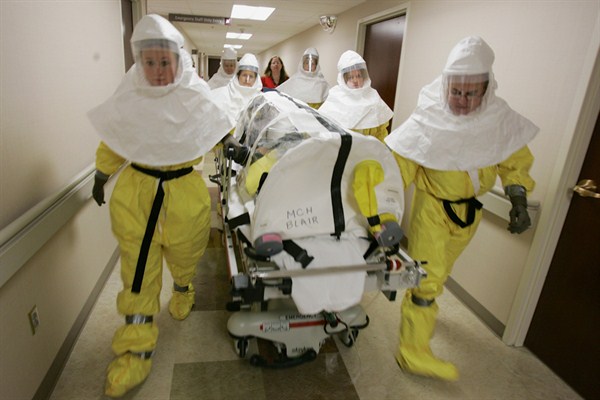Delta Airlines Flight 217 leaves Leopold Senghor International Airport in Dakar each Wednesday at 11:15 AM, bound for New York’s John F. Kennedy International Airport. During the 8-hour, 25-minute flight, the plane’s passengers can enjoy a variety of movies, have a meal and take advantage of the plane’s WiFi connection in relative comfort. And any one of them could be carrying the Ebola virus to New York, extending the epidemic’s reach to North America.
The current Ebola outbreak in West Africa has prompted a wider discussion about the ability of the United States and other industrialized democracies to respond to an infectious disease outbreak. Public health systems require strength in order to respond to epidemics, and they need resilience so that they can be ready for a wide variety of health threats. The likelihood of Ebola overwhelming the American health system is low, but that does not mean that we can be sanguine about the health care system’s ability to tackle any threats that come its way.
Ebola in the United States?
It is entirely possible that one or more cases of Ebola will appear in the U.S. The Laboratory for the Modeling of Biological and Socio-Technical Systems (MoBS Lab) at Northeastern University puts the likelihood of that happening during this current outbreak at around 18 percent. This same model gives Ghana a roughly 60 percent chance of seeing Ebola cases and the United Kingdom a 25-30 percent chance. The MoBS Lab’s simulations suggest that if any cases do appear in the U.S., the number will be quite small—likely in the single digits, and no more than 30 at the extreme.

